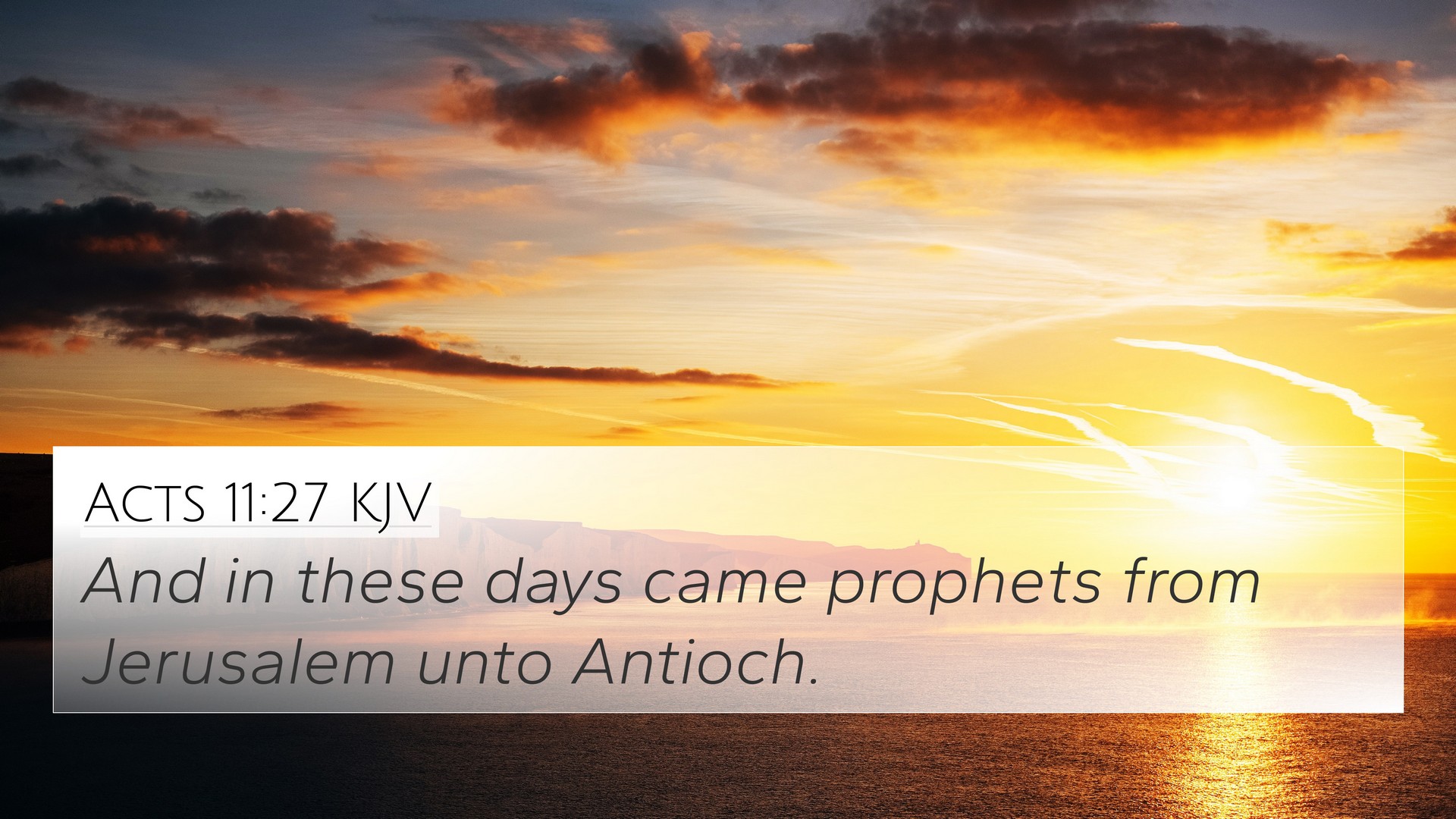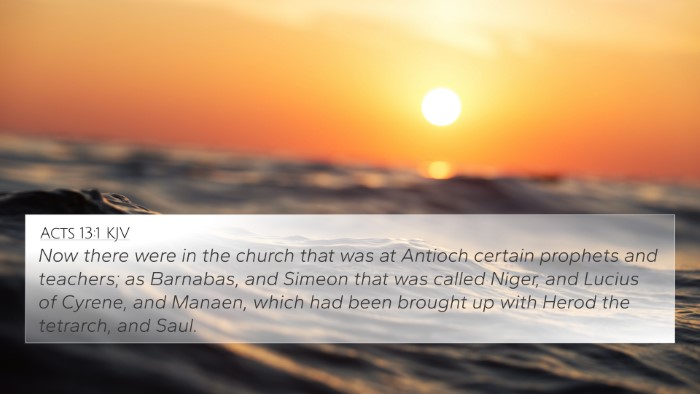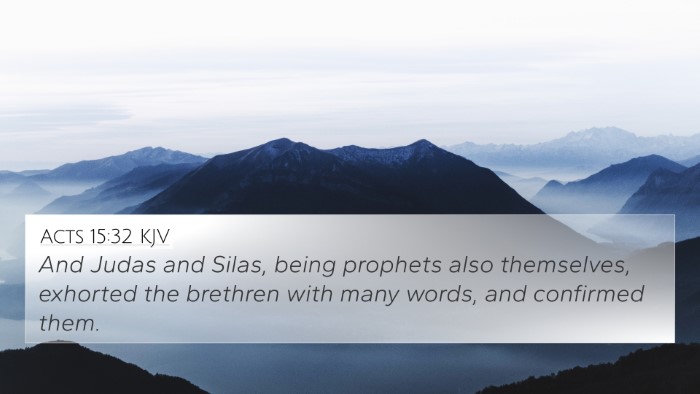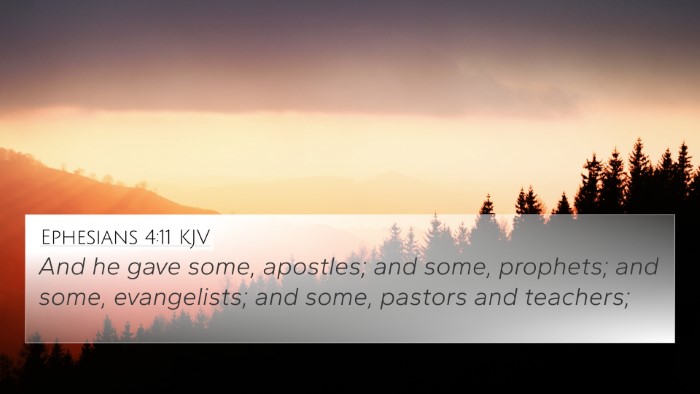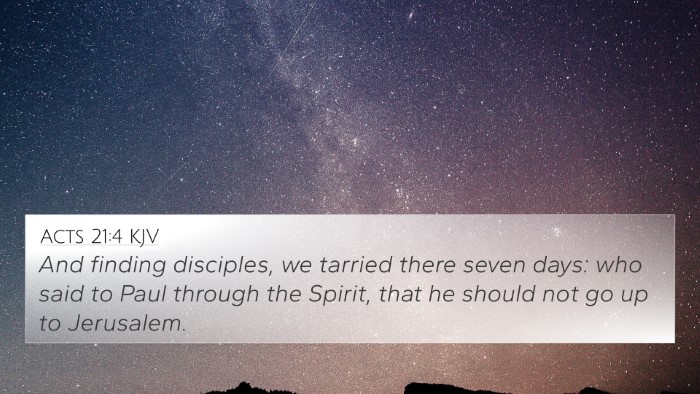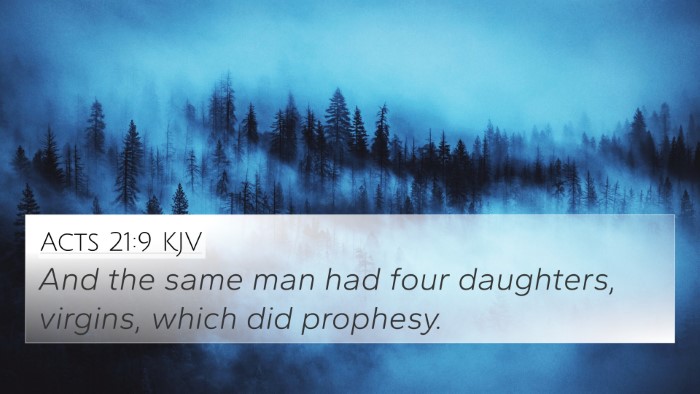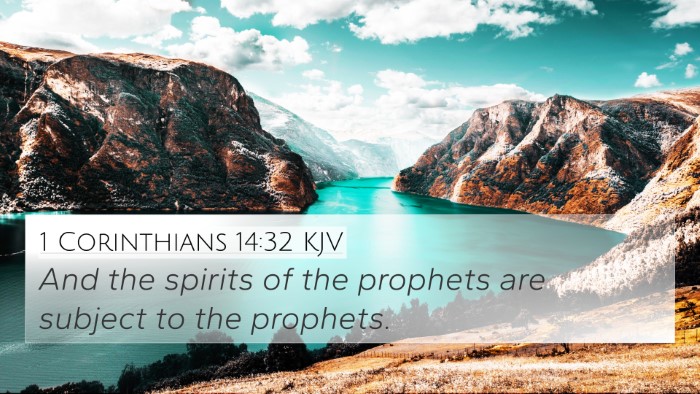Understanding Acts 11:27
Acts 11:27 states, "And in these days came prophets from Jerusalem unto Antioch." This verse marks a significant moment in the early Christian church, highlighting the role of prophecy and the prophetic ministry during that time.
Commentary Insights
The following commentary insights provide a deeper understanding of Acts 11:27, drawing from public domain sources such as Matthew Henry, Albert Barnes, and Adam Clarke:
-
Matthew Henry:
Henry emphasizes the importance of the prophets who visited Antioch and suggests that their presence indicates God's active involvement in guiding the early church. The prophets came to deliver messages from God, which would have been crucial for the burgeoning community of believers.
-
Albert Barnes:
Barnes notes the geographical and spiritual significance of the prophets arriving from Jerusalem, which was the center of the early Christian movement. He posits that this event reflects the unity and support among Christians as they spread the Gospel and discerned the needs of various congregations.
-
Adam Clarke:
Clarke elaborates on the functions of these prophets, explaining their roles in teaching, exhorting, and providing guidance. He highlights that the prophetic ministry was essential for the church's growth and stability, especially in facing the challenges of the early days.
Bible Verse Cross-References
Acts 11:27 can be linked to several other scriptures that enhance our understanding of its context and significance. These cross-references show the connections between Bible verses and how themes are interwoven throughout Scripture:
- Acts 11:28: This verse relates closely, as it illustrates the specific prophecy given by Agabus about the coming famine, underlining the importance of prophetic warnings.
- Revelation 11:3: Here, the prophetic role is emphasized again, connecting to the understanding of who God sends to guide His people during critical times.
- Ephesians 4:11: Paul discusses the roles that Christ appointed in the church, including prophets, showing the continuity of prophetic ministry.
- 1 Thessalonians 5:20: This verse encourages believers to not despise prophecies, thus reaffirming their significance in the church, similar to what is demonstrated in Acts 11.
- Acts 13:1: The mention of prophets and teachers in Antioch serves as a critical point in the narrative, linking the work of the early church back to the prophetic movements.
- Jeremiah 29:8-9: An Old Testament connection that discusses false prophets and genuine prophetic utterances, contrasting the authenticity of the message delivered to the church.
- Luke 1:70: This verse refers to God's prophetic word as a means of salvation, showing the longstanding role of prophecy in God's redemptive plan.
- Acts 21:10-11: Agabus, who is mentioned in Acts 11:27, appears again, further underscoring the significance of prophets and their messages.
- 1 Corinthians 12:28: This scripture discusses the various gifts within the church, including the gift of prophecy, demonstrating its critical role in the body of Christ.
Tools for Bible Cross-Referencing
Using Bible cross-references can enrich your understanding of Scripture and help draw thematic connections across different passages. Consider utilizing the following resources:
- Bible Concordance: A comprehensive list of words and phrases found in the Bible, helping locate where similar terms appear.
- Bible Cross-Reference Guide: Specific references designed to show connections between verses thematically or contextually.
- Cross-Reference Bible Study: Methods and techniques that facilitate deeper exploration of biblical texts through cross-referencing.
- Bible Reference Resources: Tools and charts that provide clear relationships between various scripture passages.
- Bible Chain References: These compile verses that are linked to a central theme, providing an extensive study opportunity.
How to Use Bible Cross-References
To effectively use Bible cross-references:
- Identify Key Themes: Recognize the main ideas in the scripture you are studying.
- Consult Concordances: Use a Bible concordance to find verses related to your theme.
- Explore Contextual Links: Look for connections between Old and New Testament scriptures that illuminate the theme.
- Engage in Comparative Analysis: Analyze how different biblical authors address similar topics.
- Create Visual Charts: Map out how verses are connected hierarchically or thematically.
Conclusion
Acts 11:27 serves as a pivotal moment in understanding the early church's reliance on the prophetic ministry. Through the cross-references provided and insights from prominent biblical commentators, we can appreciate the depth of Scripture and how interconnected biblical texts form a comprehensive narrative of faith. As we study Acts 11:27 and its parallels, we are encouraged to acknowledge the lasting impact of prophecy and the importance of listening to God's voice through His chosen messengers.
